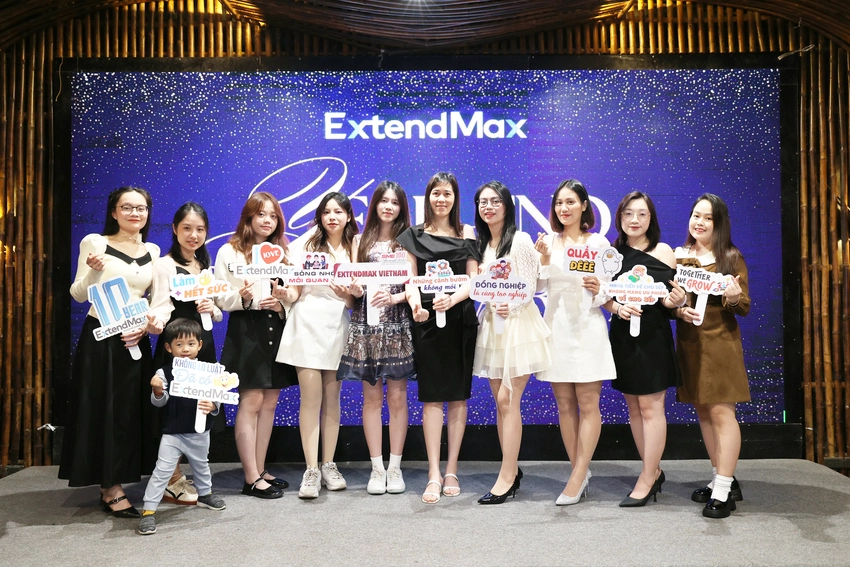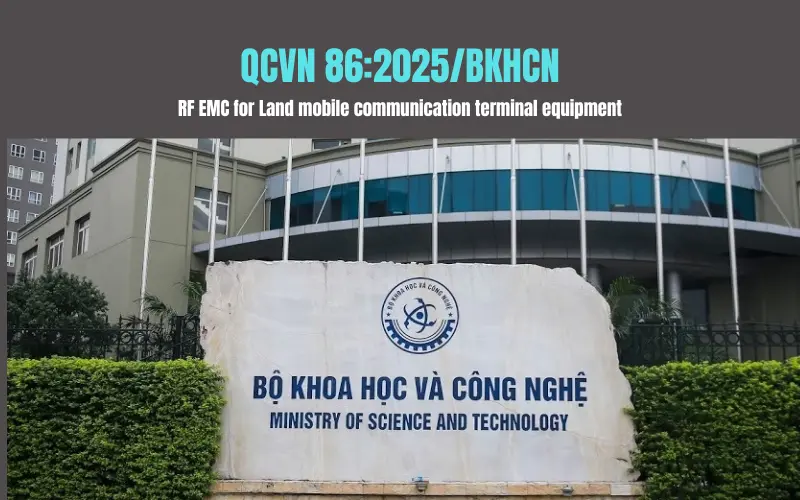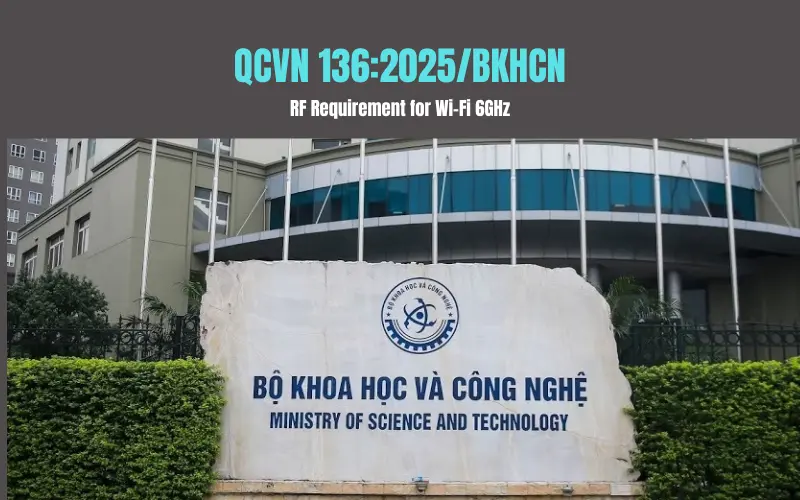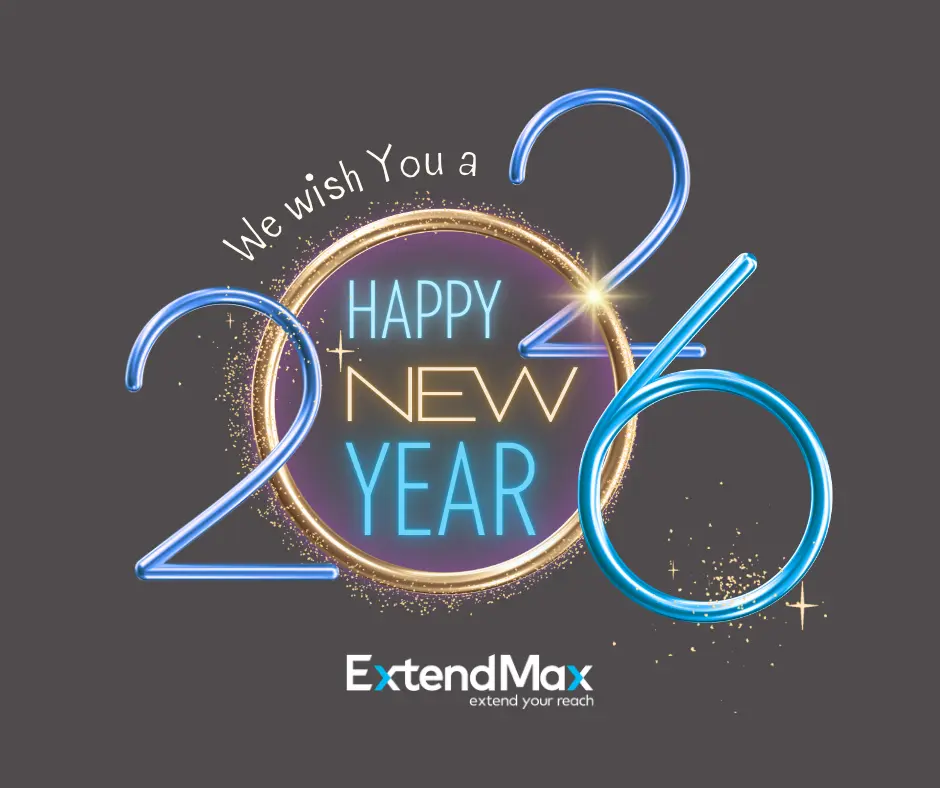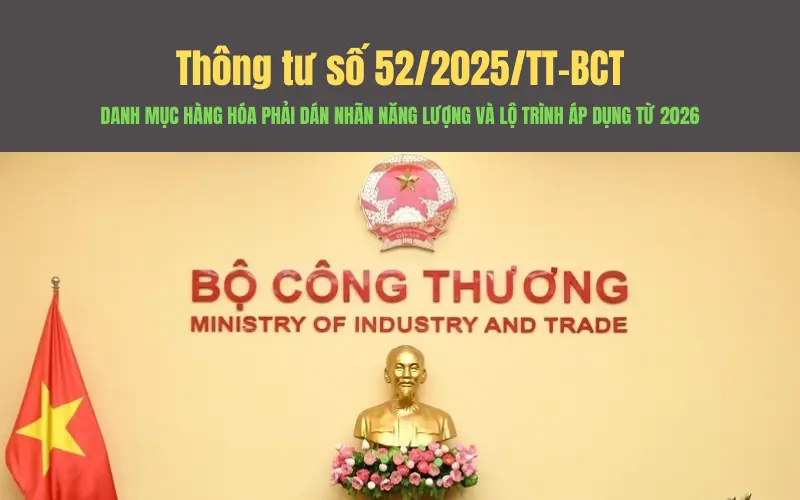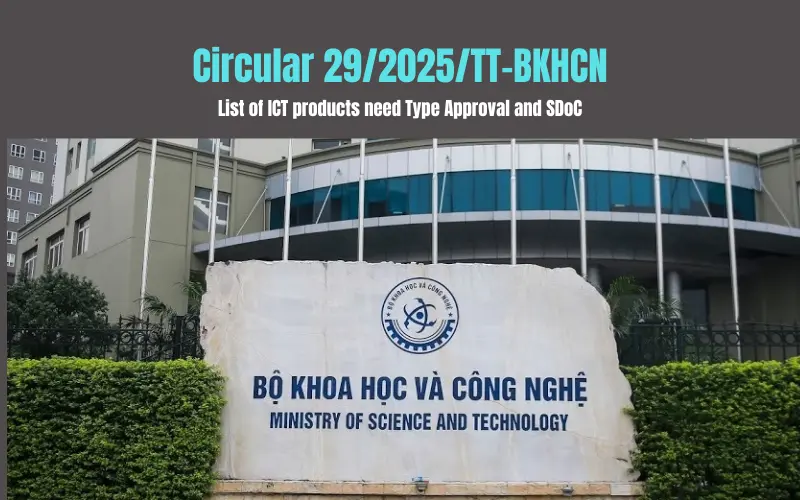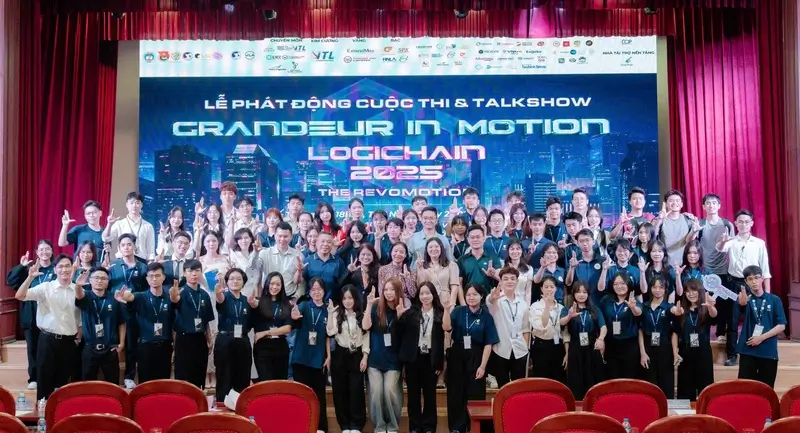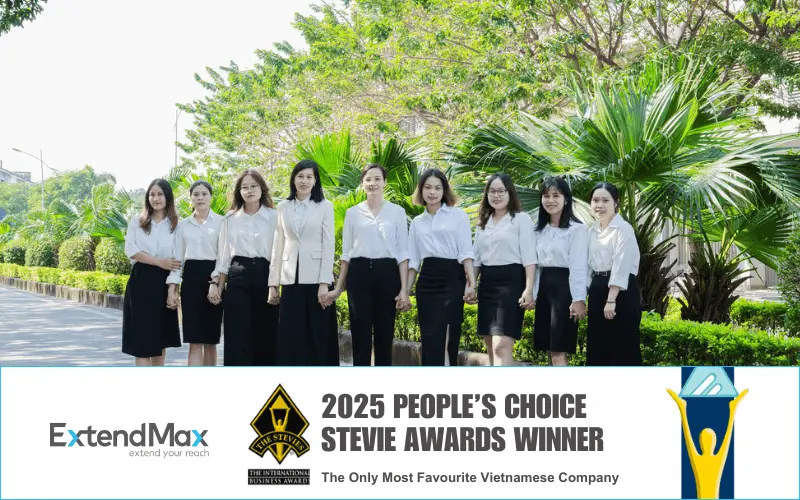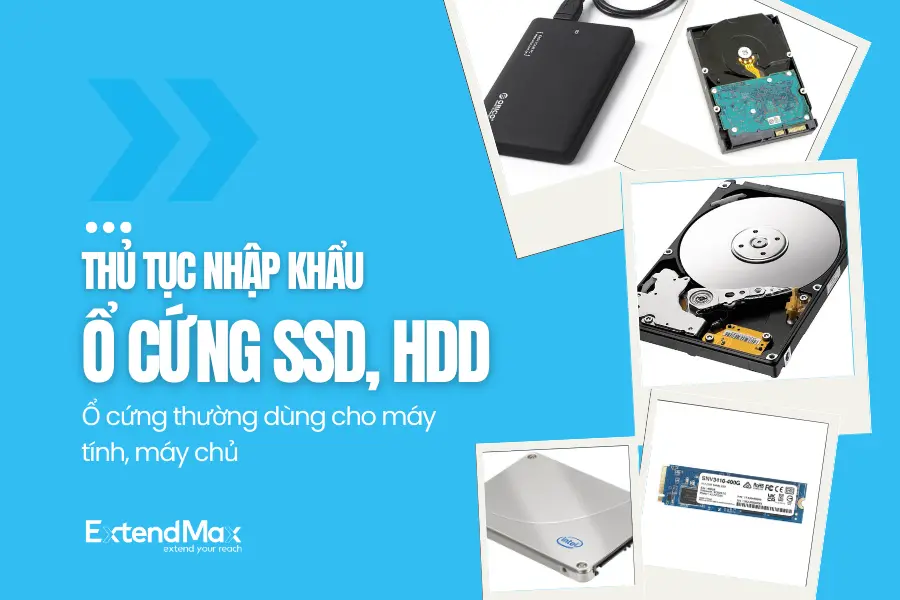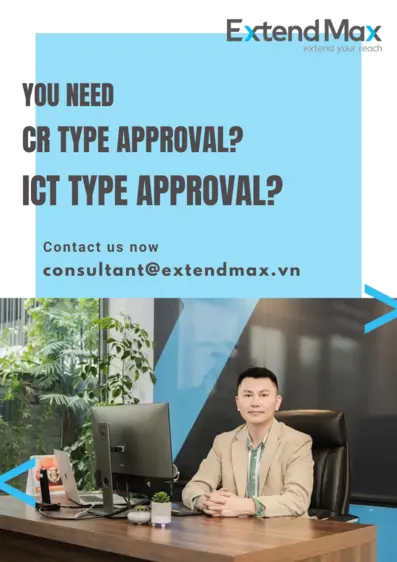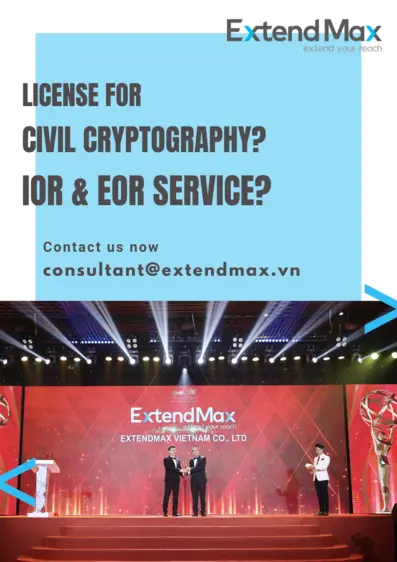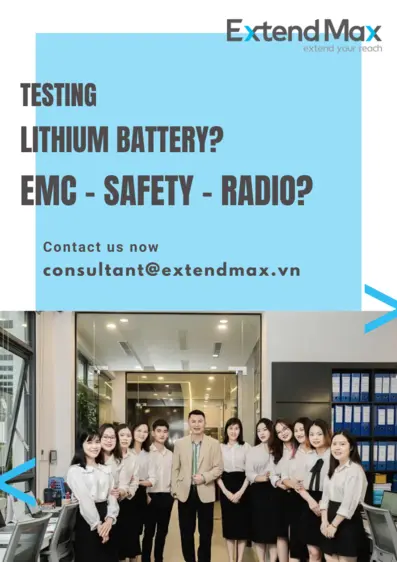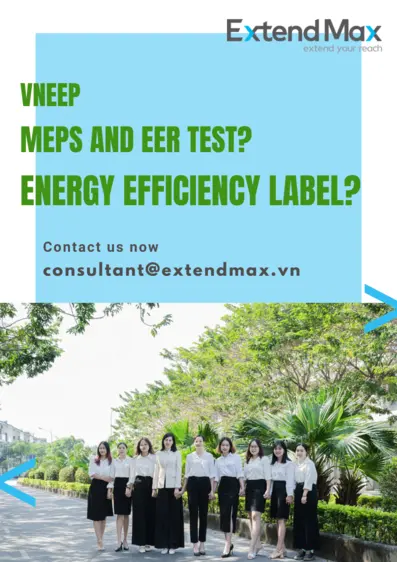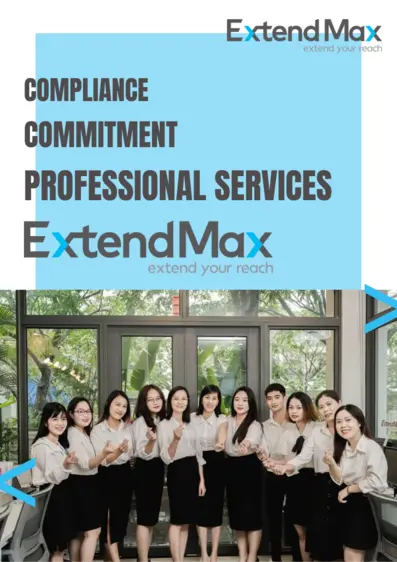EXTENDMAX – Understanding the importance of regulatory compliance certification and its methods is an indispensable step in ensuring product quality, reducing costs, and expanding business opportunities. From electronics, telecommunications, food to pharmaceuticals, the Certificate of Conformity (CoC) is key to making your products trusted and preferred by consumers. Don't miss out on the important information in this in-depth guide with comparision between EU, US, and Vietnam in conformity certification.
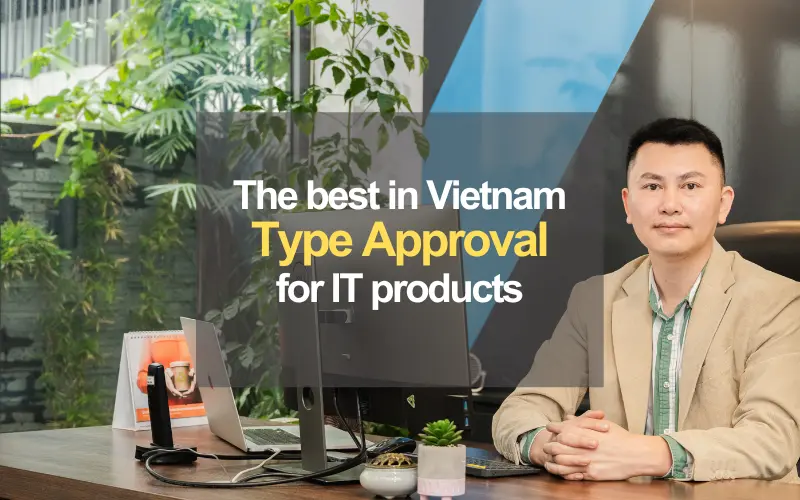
Alex Phuong Tran (Trần Thanh Phương) Leading expert in Vietnam Type Approval for IT products
Definition of Certificate of Conformity
A Certificate of Conformity is issued following the assessment of products and services to ensure they meet the requirements of established national technical regulations. This is a mandatory requirement for various products in many countries, including Vietnam, to fulfill the objectives of state management and consumer protection.
The result of the certification process is the issuance of a Certificate of Conformity, also known as a Type Approval Certificate.
Certification of conformity is one of four conformity assessment activities which include:
- Testing products and services
- Regulatory compliance certification
- Voluntary standardization certification
- Regulatory conformity declaration
In some instances, when technical standards are included in a legal document such as a Circular, Prime Minister's Decision, or Government Decree that stipulates a list of goods subject to specialized inspection and corresponding technical standards, the assessment of conformity to technical standards is also referred to as certification of conformity.
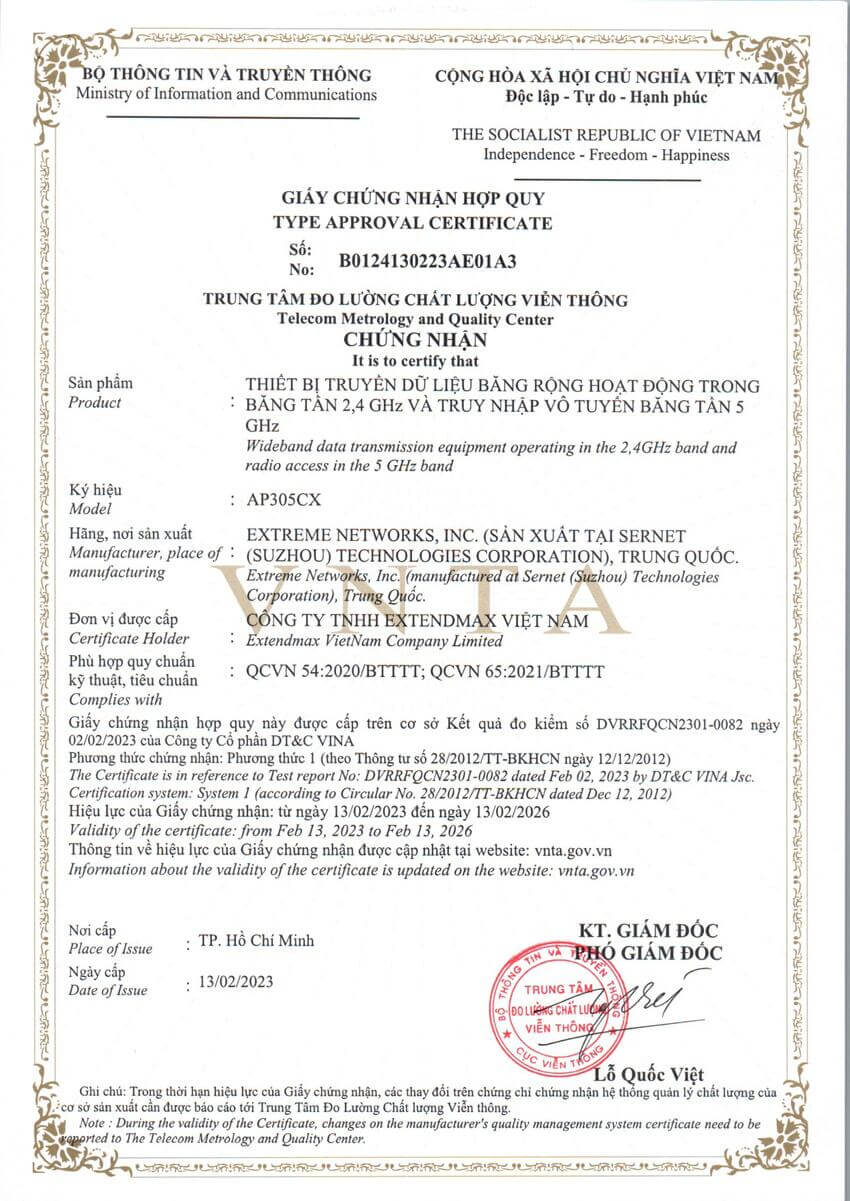
>>> Discover now: All you need to know about Declaration of Conformity
Benefits of Conformity Certification
-
Enhanced Reliability and Safety: Certification of conformity ensures that products and services meet necessary standards for reliability and safety, thereby minimizing risks to the health or safety of consumers.
-
Market Expansion and Overcoming Trade Barriers: Conformity certification opens up opportunities for businesses to access new markets, particularly those with stringent quality control regulations such as the European Union and North America. In these cases, the necessary certificates of conformity include CE (European Union) and FCC, FDA (North America).
-
Increased Competitiveness: Products that have undergone rigorous testing and obtained a conformity certificate build trust and provide peace of mind for customers.
-
Legal Compliance and Reduced Business Risks: Obtaining a certificate of conformity helps businesses avoid legal risks, fines, or bans on product sales, ensuring compliant and sustainable business operations. This is crucial in major markets like the US and EU, where penalties for non-compliance with product quality regulations can be substantial.
-
State Management and Consumer Protection: Regulations and standards establish technical barriers to fulfill state management objectives, ensuring consumers' rights to use standard-compliant products and services.
Methods of Conformity Certification
Globally, including in Vietnam, there are eight methods of conformity certification, also known as certification system or certification scheme. Depending on the nature of the products or goods, one or several methods may be applied.
| Certification method | Description | Sampling by | Maximum certificate validity | Factory audit | Chu kỳ tái đánh giá giám sát | Loại sản phẩm |
| Method / system 1 | Testing typical samples | Applicant | 03 year | Not applicable | Not applicable | Applicable to products that are less unsafe for humans, such as transceiver equipment |
| Method / system 2 | Test typical samples and evaluate the production process; monitoring through testing samples taken from the market | Certification Body | 03 year | Yes | 09 ~ 12 months | Applicable to products that are considered to pose a risk of unsafety to humans. Typical products in this group include household electronic devices, food and additives or food packaging, cosmetics, pharmaceuticals... |
| Method / system 3 | Test typical samples and evaluate the production process; Monitoring through testing samples taken at the production site combined with evaluation of the production process | Certification Body | 03 year | Yes | 09 ~ 12 months | |
| Method / system 4 | Test typical samples and evaluate the production process; Monitoring through testing samples taken at the production site and in the market combined with evaluation of the production process | Certification Body | 03 year | Yes | 09 ~ 12 months | |
| Method / system 5 | Test typical samples and evaluate the production process; Monitoring through testing samples taken at the production site or in the market combined with assessment of the production process | Certification Body | 03 year | Yes | 09 ~ 12 months | |
| Method / system 6 | Evaluate and monitor the management system | Certification Body | 03 year | Yes | 09 ~ 12 months | Rarely applicable. No sample testing, just production process management |
| Method / system 7 | Testing and evaluating batches of products and goods (consigment approval or per-lot approval) | Certification Body | valid for specific lot or shipment of product only | Not applicable | Not applicable | Applicable to products that are potentially unsafe for humans but businesses are not qualified to evaluate the factory |
| Method / system 8 | Test or inspect all products and goods | CB or Applicant | valid for specific lot or shipment of product only | Not applicable | Not applicable | Rarely, costs are very high when importing many products. For single imported products, the regulations are the same as method 7 |
Application of Conformity Certification across countries
Globally, countries are primarily categorized into two groups based on the regulatory frameworks of the European Union (EU) or the United States (US). Most countries directly accept the results of EU’s CE certification or the US’s FCC and FDA certifications. The most commonly used methods of conformity certification are Method 1 and Method 5.
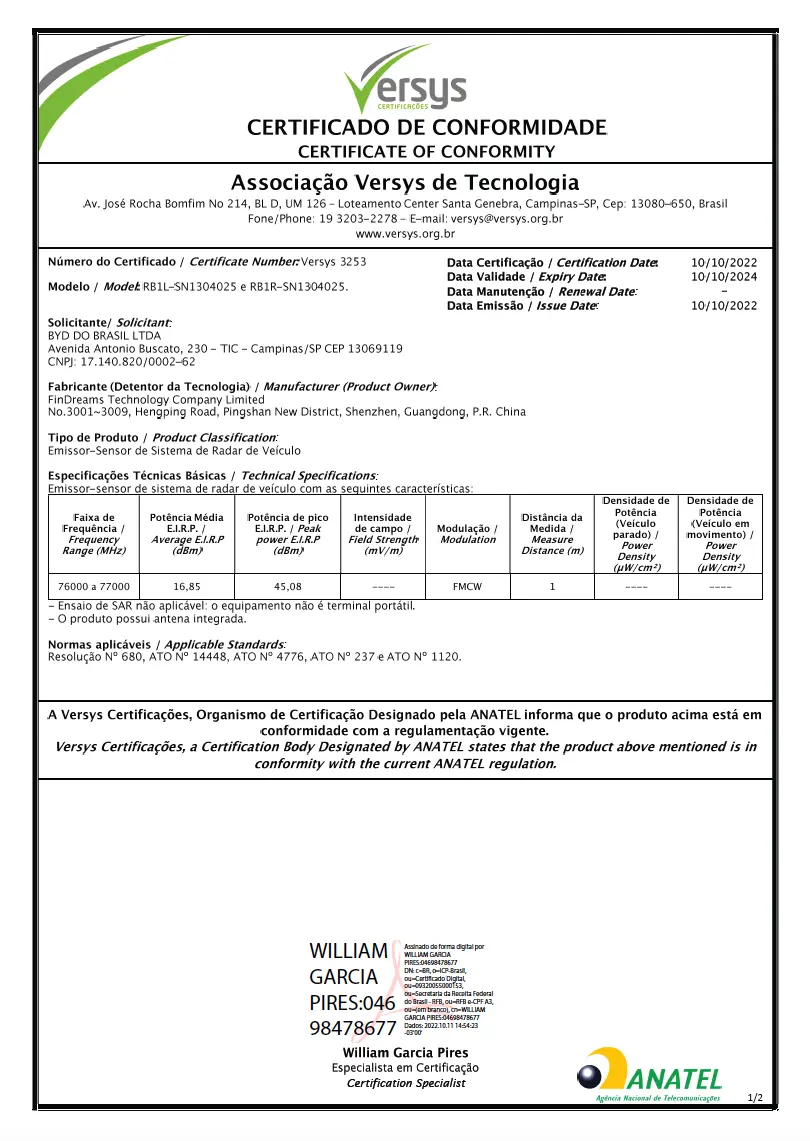
In Vietnam, the typical methods of conformity certification applied are Method 1, Method 5, and Method 7. The choice of method depends on the nature of the product or goods, with different government departments setting specific regulations for each method. Here are some typical examples:
| Country | Method 1 | Method 4 | Method 5 | Method 7 |
| Vietnam | ||||
| Applies to products or features that are less unsafe for humans | Not applicable | Applicable to products and features that pose a risk of unsafety to humans, usually household electrical products | For cases that do not meet the conditions for certification of conformity according to methods 5 |
| Common | Not applicable | Less common | Less common |
| Common | Not applicable | Applicable when the production line has not been certified with ISO 9001 or equivalent | For cases that do not meet the conditions for certification of conformity according to methods 1 and 5 |
| Less common | Applicable to imported gps tracker and car blackbox | Applicable to products and features that pose a risk of unsafety to humans, usually car and motorbike components (lithium battery, wheelrim, tires, headlight...) | For cases that do not meet the conditions for certification of conformity according to methods 1 and 5 |
| Less common | Not applicable | Common to domestic manufactured products | Common to imported products |
| Common | Not applicable | Less common | Less common |
| Uropean Union (CE) | Common, CE declaration of conformity | Not applicable | Rarely applicable. Only applies to products that can directly cause unsafety to humans | Rarely applicable. Does not apply to information technology equipment |
| US (FCC, FDA...) | Common | Not applicable | Rarely applicable. Only applies to products that can directly cause unsafety to humans | Rarely applicable. Does not apply to information technology equipment |
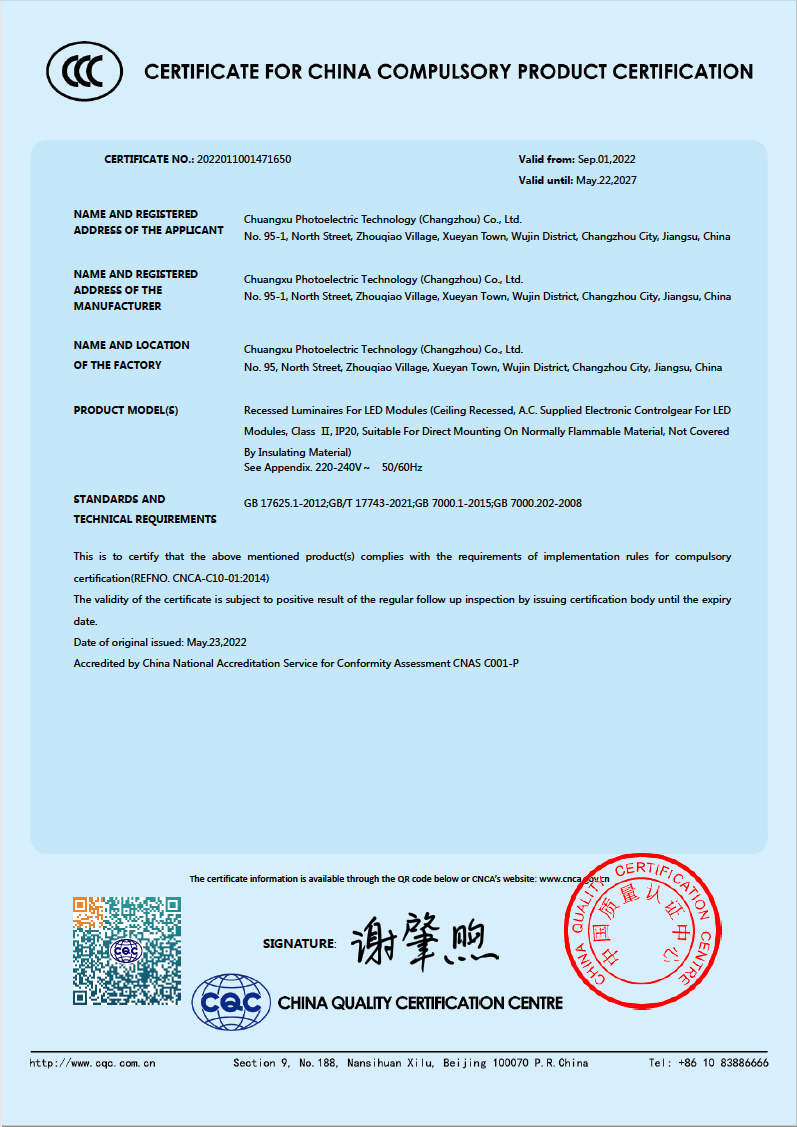
Template of China Compulsory Certificate (CCC)
Accepted Conformity Certification Bodies
Conformity certification organizations, also known as Certification Body, are entities designated, recognized, or accredited by governmental regulatory bodies to conduct conformity certification activities. The minimum standard for a conformity certification organization is to have a quality management system that meets IEC 17065 or ISO 17065 standards. These organizations can be governmental agencies, private enterprises, or international bodies.
| Countries | Designated Certification Body | Accredited Certification Body | State Management Agency |
| Vietnam | Most common. Usually state-owned units and some private companies. | Only applicable to some managing ministries, limited quantity | Not common, but there are still state management agencies that directly certify compliance with regulations such as the Vietnam Register (VR) authority |
| EU (CE) | Rare |
Most common. Usually reputable international certification organizations such as UL, TUV SUD, TUV Nord, Intertek, SGS... These conformity certification organizations also provide consulting services on international conformity certification same as ExtendMax
| Rare |
| US (FCC, FDA...) | Rare | Rare | |
| Other countries | Rare | Not suffiency input |
Guide to choose the appropriate Conformity Certification method
As discussed earlier, the method of conformity certification directly influences the cost of obtaining certification. Specifically, Methods 2 through 5 generally incur higher costs compared to Method 1. Method 7 can also be very expensive if you plan to import products multiple times over the next three years. Therefore, selecting the right certification method is crucial and should be based on the regulations of the governing bodies and the specific import needs of the client.
Method 1: Cost-Effective Certification
- Method 1 is the most cost-effective certification method, offering the longest validity period for the Certificate of Conformity—up to three years.
- ExtendMax recommends choosing Method 1 if the product qualifies, as it provides a balance between cost efficiency and duration of certification.
Method 5: For Continuous Import Needs
- Suitable when Method 1 is not applicable to the product.
- Method 5 is recommended for clients needing to import multiple batches of a product over a three-year period. It involves higher costs due to additional expenses for travel and accommodation of the assessment experts.
Method 7: For Limited or One-Time Imports
- This method is used when Method 1 is not feasible, and the import is limited or a one-time occurrence.
- Method 7 may be necessary if the foreign factory does not support the presence of experts for assessment under Method 5. This method is typically more costly due to its focused application on specific batches of products.
>>> Learn more: Indepth guidance on conformity certification method 7
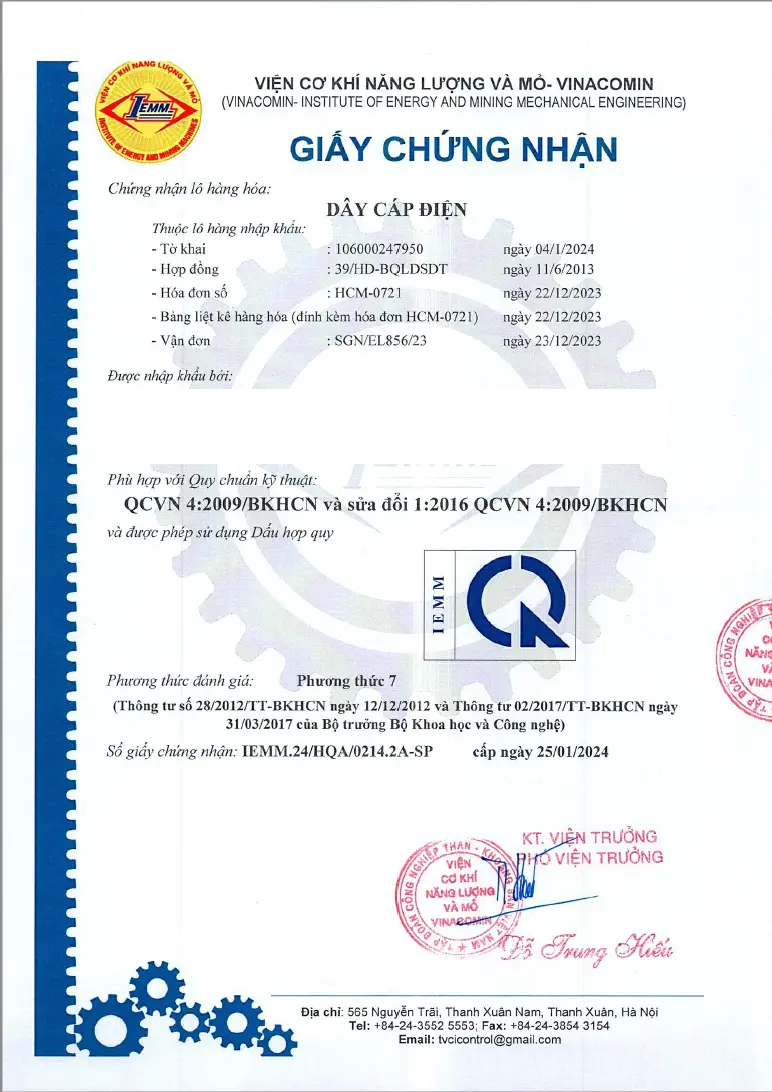
Certificate of Conformity template with method 7 - consignment or per-lot certificate
You need to know: Safety and EMC conformity certification for electronics appliances
Common Challenges in Conformity Certification
High Costs of Conformity Certification
The cost of conformity certification presents a significant challenge, especially for exporting goods to markets with strict quality control like those requiring FCC and CE certifications. Testing fees are usually high, making it difficult for small businesses to afford. The costs of conformity certification include not only fees for testing laboratories and certification bodies but also associated costs related to product research, development, and ongoing quality maintenance to ensure compliance with standards.
Continuous Updating of Standards and Regulations
Standards and technical regulations for conformity certification may change over time as dictated by regulatory agencies. This requires businesses to continuously update and adjust their production processes to comply, which can place significant time and financial pressures, particularly on small and medium-sized enterprises.
Understanding Local Legal Regulations
Each country has different regulations, and detailed knowledge of each country's rules is unfeasible, even for large corporations despite having dedicated departments for product conformity certification. In such cases, partnering with a professional consultancy organization is essential to assist with navigation through these complexities.
Choosing the Right Certification Body
Each conformity certification body may have different specialties, standards, and certification methods. Businesses need to conduct thorough research to ensure they select a certification body capable of meeting the specific needs of their products and business.
Language Barriers and Cultural Differences
For businesses seeking to certify products for export, language barriers and cultural differences can pose significant challenges. Understanding the target market's specific requirements and effectively communicating with certification bodies are crucial challenges, especially in Asian countries like Vietnam, India, and China.
Solutions for Increasing Challenges
To address these challenges, an effective solution is to seek a reputable and capable consultancy firm to partner with throughout the conformity certification process. A local provider can help overcome language and cultural barriers, keep businesses updated on the latest regulations, and facilitate effective communication with conformity certification organizations. For the Vietnamese market, ExtendMax, with its expertise and reputation, has become a trusted choice for manufacturers and importers. Currently, we serve as a provider for leading global technology companies such as Amazon, Microsoft, Lenovo, and Dell.
These strategies not only mitigate the complexities associated with conformity certification but also enhance the compliance and market competitiveness of businesses in rigorous international markets.
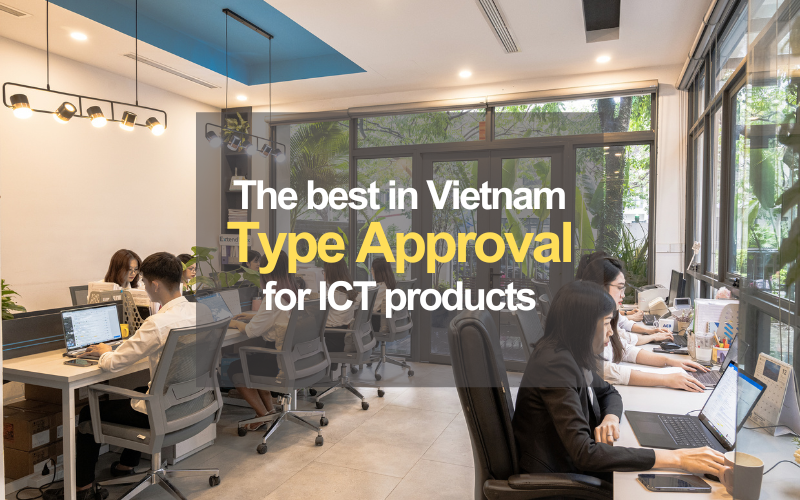
ExtendMax is a well-known and reputable compliance consultant supplier in Vietnam
New regulation: Conformity certification for encryption items
Future Trends in Conformity Certification
The future of conformity certification is moving towards a strong integration of digital technologies and automation, making the process quicker and more efficient. This not only enhances accessibility for small businesses but also improves the reliability and transparency of the certification process. Additionally, the development of new markets and stricter environmental regulations are driving the demand for new conformity certification services, particularly in sectors such as renewable energy and clean technology.
In Vietnam, the trend in the conformity certification market is toward healthy competition among state conformity certification organizations, private companies, and foreign-invested certification bodies. All activities related to conformity certification are moving towards digitalization, which is expected to improve service quality, increase transparency, and reduce the time required to obtain conformity certificates.
This shift towards digital solutions in the conformity certification process is likely to reshape the regulatory landscape, making it more dynamic and responsive to the needs of a rapidly evolving market. This trend will facilitate easier compliance with international standards, helping Vietnamese companies expand their reach and competitiveness in global markets.

Digitalization trend in conformity certification services
Frequently Asked Questions about Conformity Certification
How do I know if my product requires mandatory conformity certification?
ExtendMax Answers: In Vietnam, as in most countries, product quality management is based on HS codes and product descriptions. You should check if your product's HS code and description fall under the mandatory conformity certification list of the country. If unsure, it's advisable to seek advice from professional certification consultants like UL, TUV, or ExtendMax.
Can I choose the method of conformity certification myself?
ExtendMax Answers: Typically, the choice of conformity certification methods is regulated by governmental bodies. These methods are directly designated in the corresponding technical standards or legal documents (Decrees, Circulars, Prime Minister's Decisions, etc.) applicable to the product. You may choose a method only if the regulatory agency allows the application of two or more methods for the same product.
Are international certificates like CE, FCC, CCIC, UL, TUV recognized in Vietnam?
ExtendMax Answers: Vietnamese standards are developed based on international standards such as IECEE or ETSI, but there may be minor differences from the original versions. Additionally, under Decree 107/2016/ND-CP, foreign organizations (not registered to do business in Vietnam) do not meet the conditions to provide conformity assessment services in Vietnam. Therefore, international conformity certificates are not directly accepted in Vietnam.
Are Vietnamese conformity certificates recognized internationally?
ExtendMax Answers: Unfortunately, Vietnamese conformity certificates based on QCVN technical standards are not yet recognized internationally. However, you can contact international certification organizations to obtain certification according to international standards that may be recognized in other countries.
Why is the testing cost for radio transmission equipment certification so high?
ExtendMax Answers: Technical standards for information technology equipment typically require modern infrastructure and expensive testing equipment, leading to prolonged testing periods. Consequently, the testing costs for such devices are significantly higher compared to other product types. Some technical standards even incur testing fees amounting to billions of VND.


